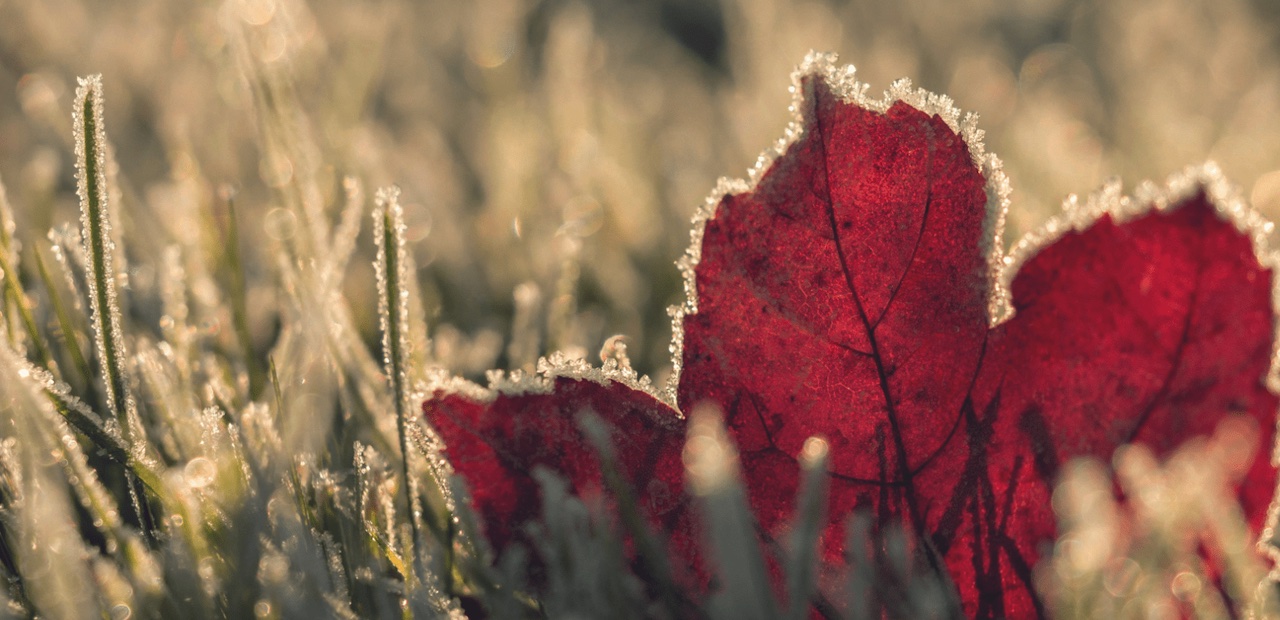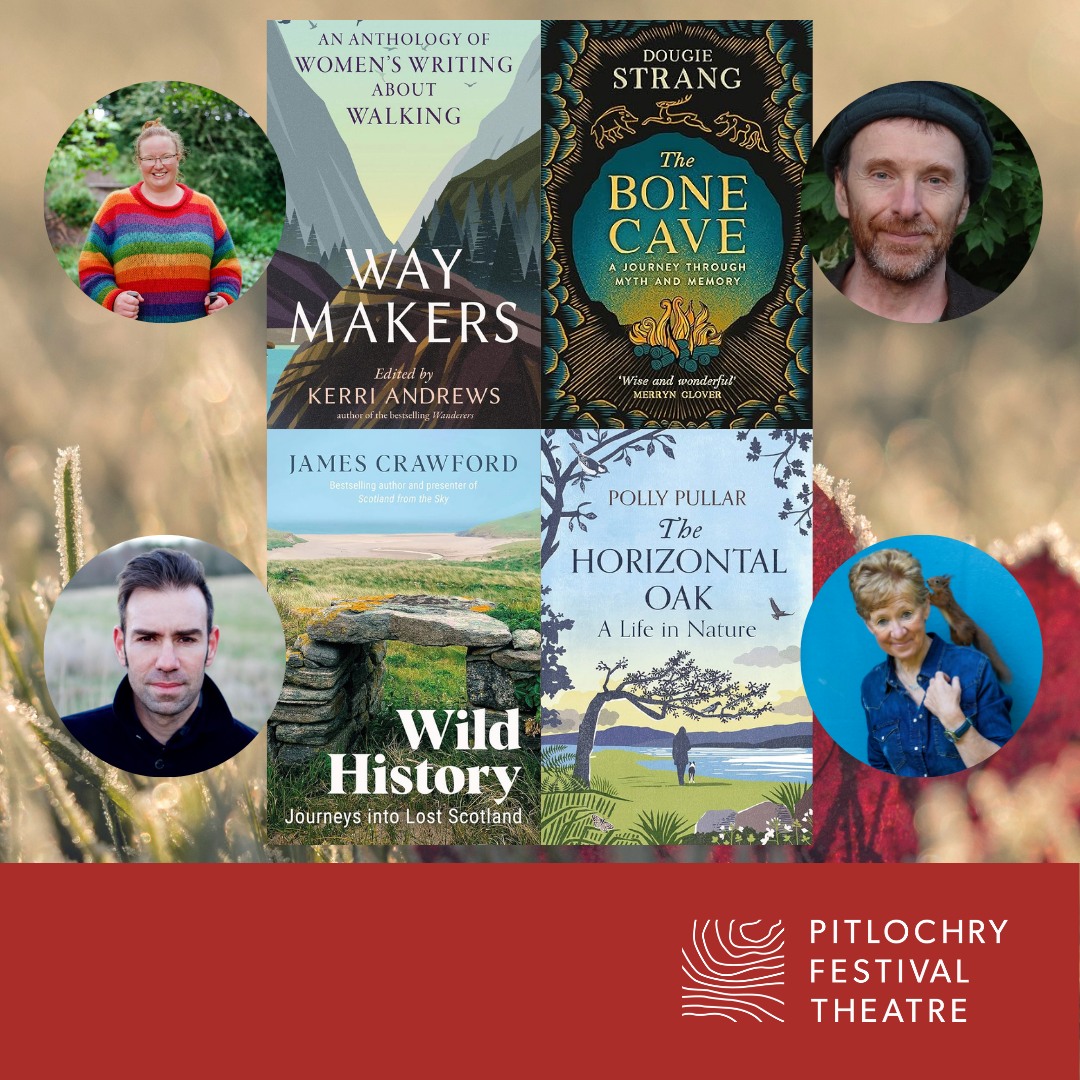This is a really special festival of Scottish writing, and of nature writing. This year the line-up included the joyful Jackie Kay, broadcaster Sally Magnusson, political diarist and former MP Chris Mullin, playwright David Greig and actor James Cosmo among other great guests.
Winter Words has a strong focus on writing about landscape, appropriate for a beautiful setting such as Pitlochry overlooked by Ben Vrackie and surrounded by The Trossachs. This year Dougie Strang discussed his book The Bone Cave which is about his month-long walk around Scotland to visit places with folklore and mythological stories attached to them. He says “Scotland has a wonderful, deep culture which brims with stories”. He discussed how Scotland’s culture is strongly tied to place, from when people lived in closer connection with the land and the seasons. The ancient Goddess the Cailleach features strongly in many Scottish stories as the Crone of Winter, the ruler of storms, and forger of the landscape. Her animal is the deer and when Dougie was camping out in a cave one night, a great antlered stag came to the entrance and growled at him in the dark, scaring the hell out of him. Apparently he had trespassed on the deer’s shelter. Dougie believes, despite the push towards ever-increasing digital and internet realities, humans are still deeply, fundamentally entangled with nature, and that’s who we really are.
BBC presenter James Crawford also has a book out Wild History: Journeys through Lost Scotland about abandoned places and structures, both ancient and more modern, such as Inchkeith in the river Forth which has been left to wildlife. Like Dougie, James trekked through parts of Scotland which aren’t always visited and tells the reader what is there. While Dougie Strang’s book is more focused on places with folklore, James’s book is more concentrated on places which have been left alone such as an old village now derelict, a shrine to a Goddess at the end of a 9 mile hike into empty countryside, or an underground hideout from thousands of years ago.
Sally Magnusson’s new book Music in the Dark is inspired by a real event – a brutal clearance of a village in Ross-shire in 1854. It was practice that the women of villages and towns in Scotland faced down Sheriffs and the police when eviction notices were served. For what reason is uncertain, perhaps it tended to work better than men facing them down, which could result in a violent showdown. On the contrary, Scottish women resorted to all sorts of strategies to repulse the sheriffs and their men, sometimes teasing them, sometimes flirting with them, sometimes humiliating them, but in one way or another repelling them from serving the notices, making it impossible for the landlord to legally evict. The authorities in Ross-shire got angry and reacted with force. Sally’s story grows out of the trauma of that incident on those involved, particularly one woman who was badly injured by police. Music in the Dark is also a love story about the power of music to heal. Sally is very interested in that subject and founded a charity called Playlist for Life which is about helping people with dementia using music.

Former Labour MP, novelist and political diarist Chris Mullin was also there discussing the latest instalment to his diaries Didn’t you use to be Chris Mullin? dating from the time after he retired from politics. Chris is an entertaining guy and has a wealth of stories. He predicts Starmer will be the next British PM but says “he won’t be a brave one.” He says Jeremy Corbyn was a decent guy but would have been a terrible PM because he’s such a softie he wouldn’t be able to say no to anything or anyone.
James Cosmo was the Saturday evening entertainment at the festival, and he’s a brilliant, modest, funny man who totally charmed the audience. James’s dad was a jobbing actor, so James went into the profession with his eyes open about how hard it was to make a living. He was raised in post-war Dalmuir, playing in bombed out buildings as a kid, but he talked about how that generation was wonderful, with a strong community who wanted the best for everyone and were very compassionate after the horror of war. He tells of how his mum, when his Dad got an acting job in London, bought a horse from a fish market in Glasgow, and a cart, bundled the children into it and travelled down to London by buggy. He feels very blessed to be an actor and would have liked his Dad to have seen him become successful. He really enjoys acting and loves getting deep into a character. He says “Even if I’m doing a student film, in the dark, in a swamp, in winter, I’m still doing what I love.” His big breakthrough was in Braveheart, and he’s been in over a hundred TV and film roles. He talks about how much art and culture was respected in the past, and how workers from the shipyards used to go to the Citizens Theatre to watch Shakespeare during their break. He believes that today TV and film networks don’t respect their audience enough, and would like to see that change. He is also passionate about personal liberty, talking eloquently about government over-reach, likening it to Lilliputian threads – where each thread which ties you down seems inconsequential until you wake up one day and have nothing. He also loves his whisky, and has collaborated with the distillery Annandale to create a new 85% single malt blend called Storyman which was named Whisky of the Year in The Herald.

- FILM REVIEW: Sometimes I Think About Dying (2024) - 10th March 2024
- TWO FINE DOCUMENTARIES: High and Low and Made in England, the Films of Powell & Pressburger - 10th March 2024
- FILM REVIEW: Frank Capra: Mr America (2023) - 4th March 2024










